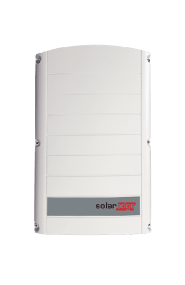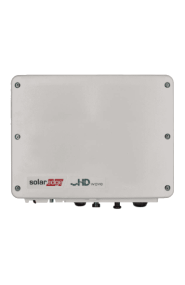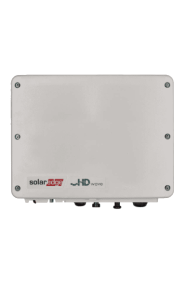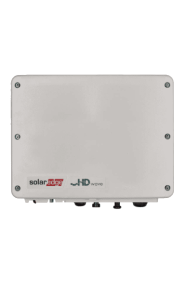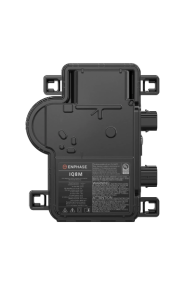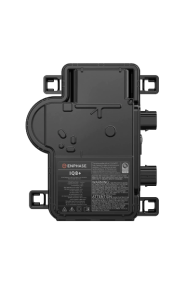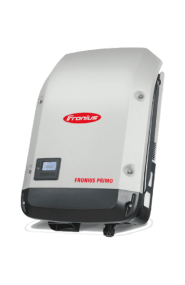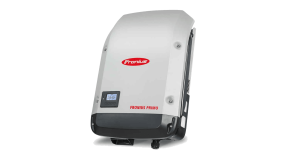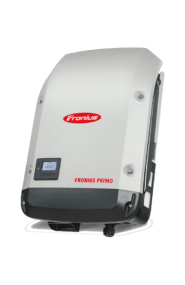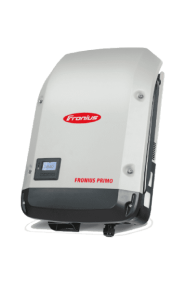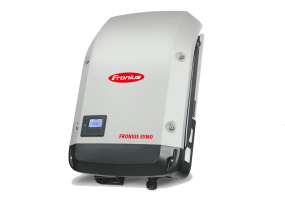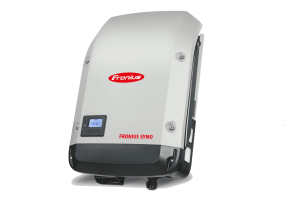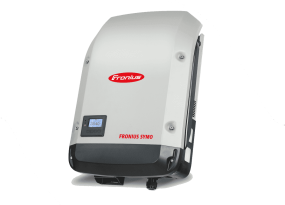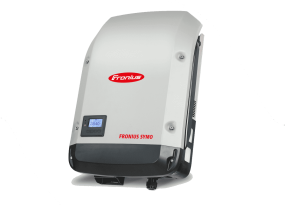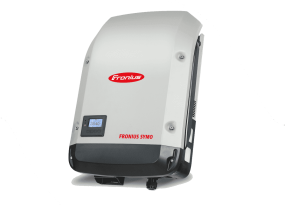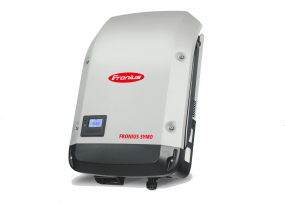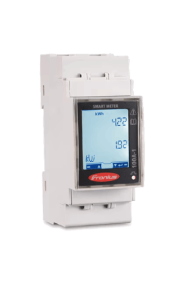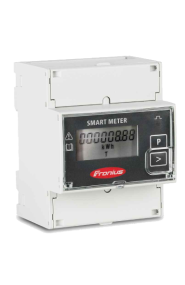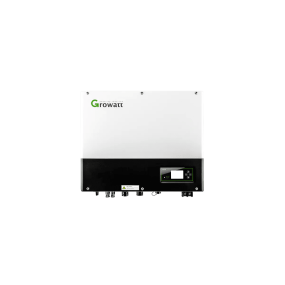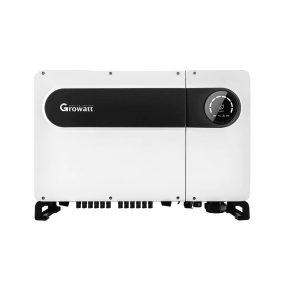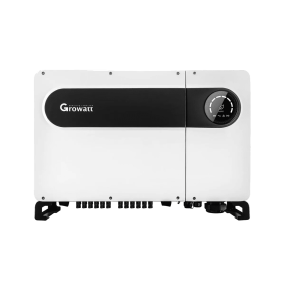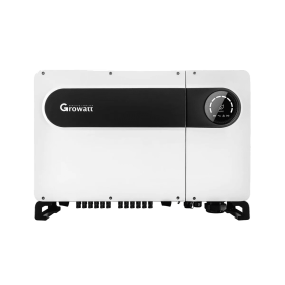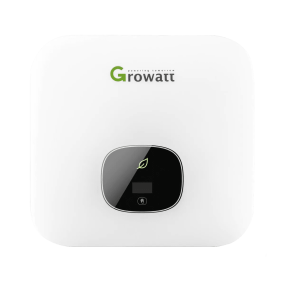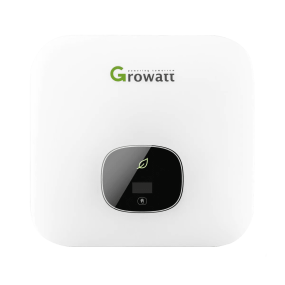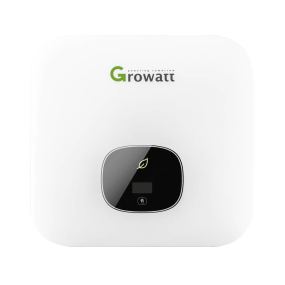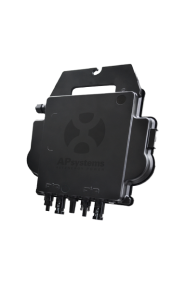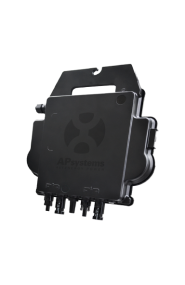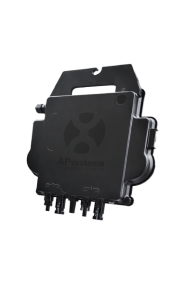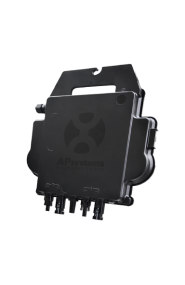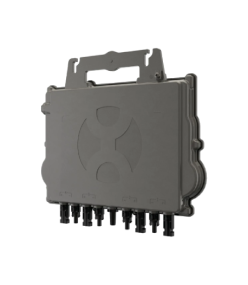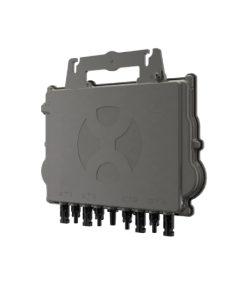A Comprehensive Guide to Understand Solar Inverters, Their Different Types, and What to Consider When Selecting the Best Solar Inverter
Article by ;
Introduction
As the world continues to focus on renewable energy, solar power has become an increasingly popular option for homeowners and businesses alike. While solar panels are the most visible component of a solar energy system, the solar inverter is just as crucial. A solar inverter is a device that converts the direct current (DC) generated by solar panels into alternating current (AC), which can be used to power your home or business or sent back to the grid.
This comprehensive guide will help you understand the different types of solar inverters and what to consider when selecting the best solar inverter for your needs.
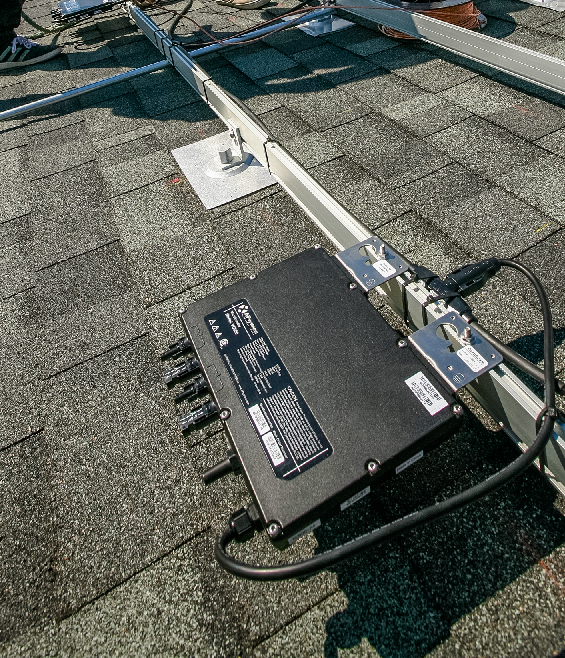
What is a solar-inverter ?
A solar inverter is a device that converts the direct current (DC) electricity generated by solar panels into the alternating current (AC) electricity that is used to power homes, businesses, and the electric grid. The solar inverter is a critical component in any solar energy system, as it allows the electricity generated by solar panels to be used by electronic devices and appliances.
The solar inverter is responsible for ensuring that the electricity produced by the solar panels is usable and can be fed into the electrical grid. Without a solar inverter, the electricity generated by solar panels would be unusable and essentially worthless.
The different type of inverters
There are many types of inverters, each with different capabilities es, it is important to understand the basics of each solar inverter before choosing the right inverter for your installation. Here is a brief description of each inverter type, their advantages as well as information regarding which type of systems best suit these solar inverters.
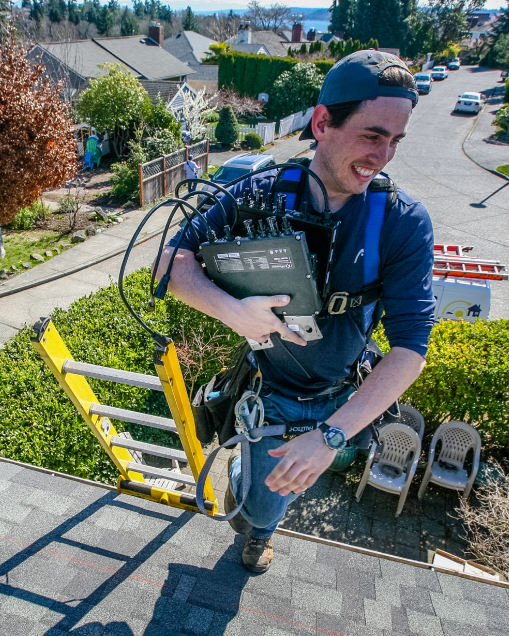
1. Micro-inverters
Solar micro inverters are the key components that convert the DC power generated by solar panels into usable AC power. With a solar micro inverter, you can maximize the energy production of your solar panel system by ensuring that each panel operates at its maximum potential. Our solar micro inverter is designed to provide optimal performance and reliability, ensuring that your solar power system operates at peak efficiency. Here are some advantages of micro-inverters:
- Each panel operates independently, maximizing energy production
- Better performance in shaded or partially shaded areas
- Easier to expand solar panel system in the future
- Reduced risk of system failure as a single panel issue won't affect the whole system
- Improved safety as there is no high voltage DC electricity on the roof
- Remote monitoring and control capabilities for improved system maintenance and performance optimization.
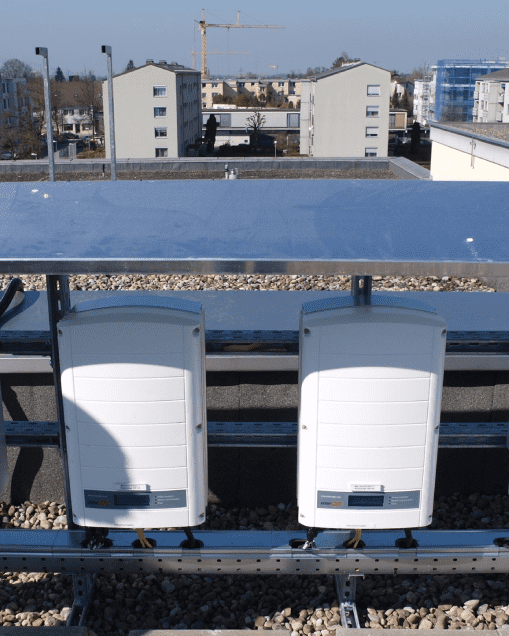
2. String Inverter
A string inverter is a type of power inverter used in solar power systems to convert DC (Direct Current) electricity produced by solar panels into AC (Alternating Current) electricity that can be used by household appliances or sent to the electrical grid. Advantages of a string inverter include:
- Efficiency: String inverters are highly efficient, with efficiency ratings typically ranging between 95% and 98%.
- Cost-effective: String inverters are cost-effective because they are relatively simple in design and easy to install.
- Flexibility: String inverters can be connected to multiple solar panels in a series, which allows for greater flexibility in system design and installation.
- Monitoring: String inverters often come with built-in monitoring systems that allow users to track the performance of their solar power system in real-time.
- Durability: String inverters are typically designed to withstand harsh weather conditions, such as extreme heat or cold, and have a long lifespan.
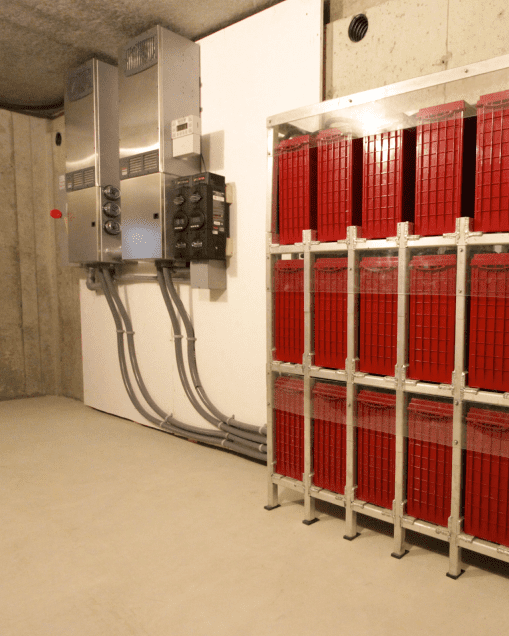
3. Hybrid inverters
A hybrid inverter is a type of power inverter utilized in solar power systems to convert both DC (Direct Current) electricity produced by solar panels and AC (Alternating Current) electricity from the grid into usable AC power that can be utilized by household appliances or sent back to the grid. The advantages of a hybrid inverter are diverse.
- Efficiency : These devices are highly proficient, with efficiency ratings typically ranging between 95% and 98%, while optimizing the use of grid power to reduce energy bills.
- Backup power : Hybrid inverters are endowed with a built-in battery backup system, which can store excessive solar power generated during the day for use during power outages or when grid electricity is unavailable.
- Flexibility : Hybrid inverters can be connected to multiple solar panels in a series, allowing for greater flexibility in system design and installation.
- Cost-effective : These devices are cost-effective, as they help reduce energy bills by utilizing stored solar power during peak demand hours when grid electricity is more expensive.
- Monitoring : Hybrid inverters often come with built-in monitoring systems that enable users to track the performance of their solar power system and battery backup in real-time, helping them identify any issues or inefficiencies.
- Sustainable : Hybrid inverters are a sustainable option for generating and using renewable energy, which can reduce carbon emissions and promote environmental sustainability.
Frequently asked questions about Solar Inverters?
If you are considering installing a solar panel system or already have one, you may have some questions about solar inverters. Solar inverters are an essential component of any solar power system, as they convert the DC electricity generated by solar panels into AC electricity that can be used to power your home or business. On this page, we have compiled some of the most commonly asked questions about solar inverters to help you better understand their function, types, maintenance, and more. We hope this FAQ page will provide you with valuable information and answer any questions you may have about solar inverters.
How to choose your inverter ?
The process of selecting an inverter can be quite intricate, with many important factors to consider. It is crucial to take into account the specific needs and requirements of your electrical system, as well as the various technical specifications of the inverter. This can include the input voltage, the maximum output power, the frequency range, and the efficiency rating, among other things.
Moreover, it is essential to carefully evaluate the quality and reliability of the inverter, as well as its compatibility with the other components of your system. This can involve researching different brands and models, reading reviews and technical documentation, and consulting with industry experts or experienced professionals.
Furthermore, it is important to consider the various installation and maintenance requirements of the inverter, such as the physical dimensions, the cooling and ventilation requirements, and the necessary safety precautions. This can involve working with skilled technicians or contractors, obtaining the appropriate permits and certifications, and following all relevant codes and regulations.
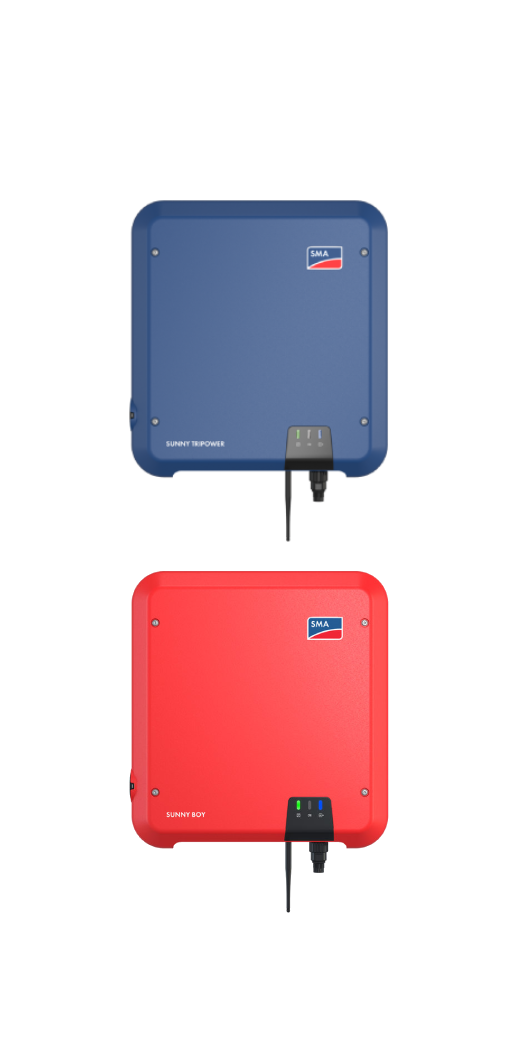
What is the difference between monophase inverters and triphase inverters ?
Monophase inverters and triphase inverters are two different types of solar inverters. Monophase inverters are designed to convert the DC electricity generated by solar panels into single-phase AC electricity, which is typically used in residential homes and small commercial buildings. Triphase inverters, on the other hand, are designed to convert the DC electricity into three-phase AC electricity, which is typically used in larger commercial and industrial buildings.
The main difference between the two types of inverters is their capacity to handle power. Triphase inverters can handle much larger amounts of power than monophase inverters, which makes them more suitable for larger solar panel systems that generate higher levels of electricity. Additionally, triphase inverters may also be more efficient in converting DC to AC electricity in large-scale solar power systems.
Another difference between monophase and triphase inverters is the way they are connected to the electrical grid. Monophase inverters are typically connected to a single phase of the electrical grid, while triphase inverters are connected to all three phases of the grid. This allows triphase inverters to distribute power more evenly across the three phases, which can help to reduce the risk of power imbalances and improve overall system performance.
Where to install your solar inverter ?
Installing your solar inverter in the right location is critical to ensure that your solar power system operates at maximum efficiency. The location should be well-ventilated, easily accessible, and safe from potential damage or theft. Here are some places you should consider installing your solar inverter:
-
Indoors: One of the most common locations to install a solar inverter is indoors, in a well-ventilated area such as a garage, basement, or utility room. This location provides protection from the elements and reduces the risk of damage from weather or vandalism.
-
Outdoors: Solar inverters can also be installed outdoors, but it is important to choose a location that is protected from direct sunlight, rain, and other weather conditions. An outdoor enclosure or cabinet can be used to protect the inverter from the elements.
-
Wall-mounted: Many solar inverters are designed to be wall-mounted, which can save space and make them easier to access for maintenance and repairs.
-
Ground-mounted: In some cases, solar inverters may be installed on the ground, especially if there is limited space indoors or if outdoor installation is preferred. Ground-mounted inverters should be placed on a sturdy, flat surface and protected from the elements.
-
Near the solar panels: For larger solar power systems, it may be beneficial to install the solar inverter near the solar panels, which can reduce the amount of wiring and increase overall efficiency.
When selecting a location for your solar inverter, it is important to consider factors such as accessibility, ventilation, protection from the elements, and ease of maintenance. You should also consult with a qualified solar installer to ensure that the installation meets all local codes and regulations.
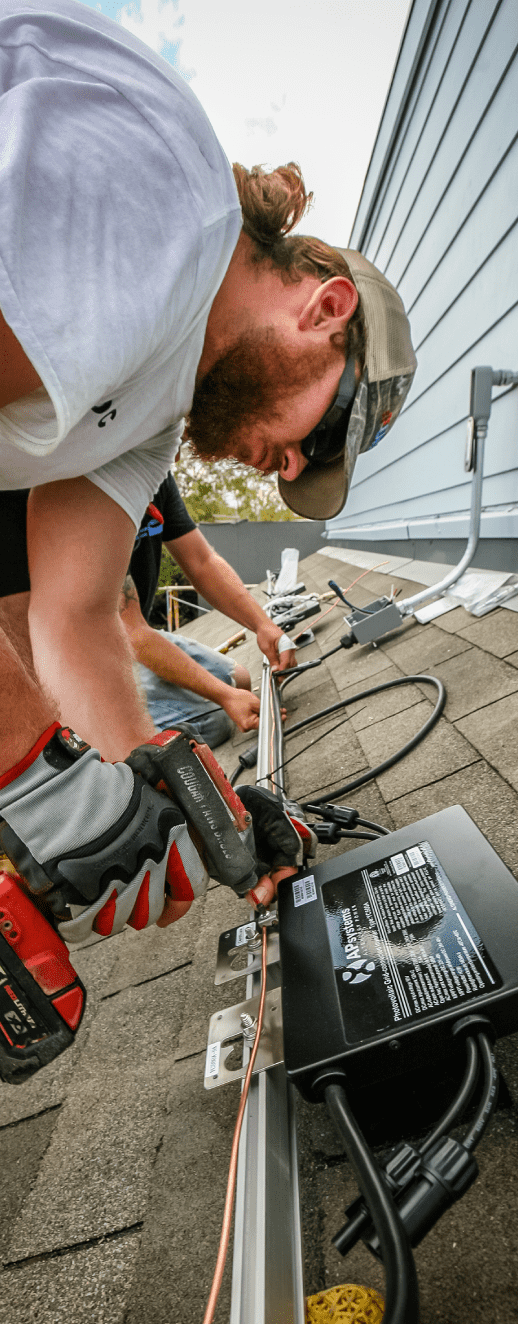
How to maintain your inverter ?
Maintaining your solar inverter is crucial to ensure that your solar power system operates at maximum efficiency and continues to generate clean energy for your home or business. Here are some tips on how to maintain your solar inverter:
-
Regular inspections: Regularly inspect your solar inverter to ensure that it is clean, free of debris and dust, and functioning properly. Check for any signs of wear and tear, including loose wires or damaged components, and have them repaired immediately.
-
Cleanliness: Keep the area around the inverter clean and free of dust and debris, which can clog air vents and reduce cooling efficiency. Use a soft brush or cloth to gently clean the inverter and its components.
-
Firmware updates: Many solar inverters are equipped with firmware that needs to be updated periodically to ensure optimal performance. Check with your installer or manufacturer to determine the appropriate firmware update schedule.
-
Temperature management: Ensure that the inverter is operating within the recommended temperature range. High temperatures can reduce the efficiency and lifespan of the inverter, while low temperatures can affect its performance. Keep the inverter in a well-ventilated area and avoid direct sunlight if it is installed outdoors.
-
Monitoring: Use a monitoring system to track the performance of your solar power system and identify any potential issues. Many solar inverters come with monitoring software that can provide real-time data on energy production and system performance.
-
Professional maintenance: Schedule professional maintenance with a qualified solar installer to perform routine inspections, repairs, and cleaning. This can help to identify and resolve any issues before they become more serious.
What is the lifetime of an inverter ?
The lifetime of a solar inverter depends on several factors, including the quality of the components, the operating environment, and the level of maintenance. Most solar inverter manufacturers offer warranties that cover the inverter for a certain period of time, typically between 5 and 25 years. However, the actual lifespan of an inverter may vary depending on the following factors:
-
Quality of components: The quality of the components used in the inverter can affect its lifespan. High-quality components may last longer and require less maintenance than lower-quality components.
-
Operating environment: The operating environment can have a significant impact on the lifespan of an inverter. Extreme temperatures, humidity, and exposure to the elements can all contribute to wear and tear on the components.
-
Maintenance: Proper maintenance is essential to ensure the longevity of a solar inverter. Regular cleaning and inspections can help to identify and resolve any issues before they become more serious.
-
Usage: The amount of usage or energy production that the inverter handles can affect its lifespan. Inverters that are used at maximum capacity for extended periods of time may have a shorter lifespan than those that are used intermittently.
Which solar inverter brand should I choose ?
Choosing a solar inverter brand can be a daunting task as there are many reputable brands in the market. It's important to do your research and choose a brand that has a proven track record of reliability, efficiency, and compatibility with your specific solar panel system. Some popular solar inverter brands include SMA, Fronius, Enphase, SolarEdge, and ABB. These brands are known for producing high-quality, reliable, and efficient solar inverters that are compatible with a wide range of solar panel systems, and you can find some of them down below ;
1. SolarEdge
SolarEdge is a leading inverter manufacturer that has revolutionized the solar industry with its innovative power optimization technology. The SolarEdge inverter is an integral component of the SolarEdge PV system, which maximizes energy production, reduces costs, and enhances safety. Some of the various benefits of a SolarEdge inverters include :
- Maximizes Energy Production
- Increases System Efficiency
- Ensures System Safety
- Provides Real-Time Monitoring
- Facilitates Easy Maintenance
2. Enphase
Enphase micro-inverter is an advanced technological device that is revolutionizing the solar industry. The Enphase micro-inverter has a plethora of advantages over traditional solar inverters. To enumerate some of its advantages, we have listed them in brief bullet points below;
- The Enphase micro-inverter has a higher energy yield as compared to traditional solar inverters due to its superior technology.
- The Enphase micro-inverter is designed to be more reliable, efficient, and durable, making it a more long-term solution for solar energy needs.
- The Enphase micro-inverter operates independently, making it more effective in handling shade and obstructions, which can cause significant performance issues in traditional solar inverters.
- The Enphase micro-inverter has a lower cost of ownership as compared to traditional solar inverters due to its advanced technology, which translates to lower maintenance and repair costs.
- The Enphase micro-inverter has a modular design that allows for easy expansion, making it a more flexible solution for both residential and commercial solar energy needs.
3. Fronius
Fronius inverter is a cutting-edge device that is transforming the solar industry. The Fronius inverter is a highly advanced technology that has numerous advantages over traditional solar inverters. Below are some of its key benefits, listed in brief bullet points:
- The Fronius inverter has a higher efficiency rate compared to traditional solar inverters, ensuring maximum energy yield from solar panels.
- The Fronius inverter is built with a high-quality design that enhances its durability, reliability, and long-term performance.
- The Fronius inverter comes with a range of smart features that make it easier to monitor, maintain and optimize the system, leading to increased efficiency and cost savings.
- The Fronius inverter is highly flexible, and can be used for residential, commercial and industrial solar systems, making it a versatile solution for a wide range of needs.
- The Fronius inverter is designed with advanced technology that enables it to operate effectively even in extreme weather conditions.
4. Growatt
Growatt inverter is an innovative device that is transforming the solar industry. The Growatt inverter is a highly advanced technology that offers numerous benefits over traditional solar inverters. Here are some of its key advantages, presented in brief bullet points:
- The Growatt inverter has a high efficiency rating, resulting in a greater energy yield from solar panels and lower electricity bills.
- The Growatt inverter is designed with advanced technology that enables it to operate in a wide range of environmental conditions, including extreme heat and cold.
- The Growatt inverter is highly flexible and can be used in a wide range of solar energy applications, including residential, commercial, and industrial settings.
- The Growatt inverter is user-friendly and comes with easy-to-use software that allows for remote monitoring and control of the system.
- The Growatt inverter is built to last, with a robust construction that enhances its durability and long-term performance.
4. APSystems
The APSystems micro-inverter is a state-of-the-art device that is revolutionizing the solar industry. The APSystems micro-inverter is a highly advanced technology that provides numerous advantages over traditional solar inverters. Below are some of its key benefits, presented in brief bullet points:
- The APSystems micro-inverter is built with a cutting-edge design that maximizes energy efficiency, resulting in a greater energy yield from solar panels and lower electricity bills.
- The APSystems micro-inverter is highly flexible and can be used in a wide range of solar energy applications, including residential, commercial, and industrial settings.
- The APSystems micro-inverter is designed with advanced technology that enables it to operate in a wide range of environmental conditions, including extreme heat and cold.
- The APSystems micro-inverter is user-friendly and comes with easy-to-use software that allows for remote monitoring and control of the system.
- The APSystems micro-inverter is built to last, with a robust construction that enhances its durability and long-term performance.
Conclusion
In conclusion, a solar inverter is an essential component of any solar power system. It is responsible for converting the DC power produced by solar panels into AC power that can be used to power household appliances and feed back into the grid. When selecting a solar inverter, it is important to consider factors such as efficiency, reliability, and compatibility with your specific solar panel system. By choosing the right solar inverter, you can ensure that your solar power system operates efficiently and effectively, providing you with reliable and cost-effective renewable energy for years to come.


